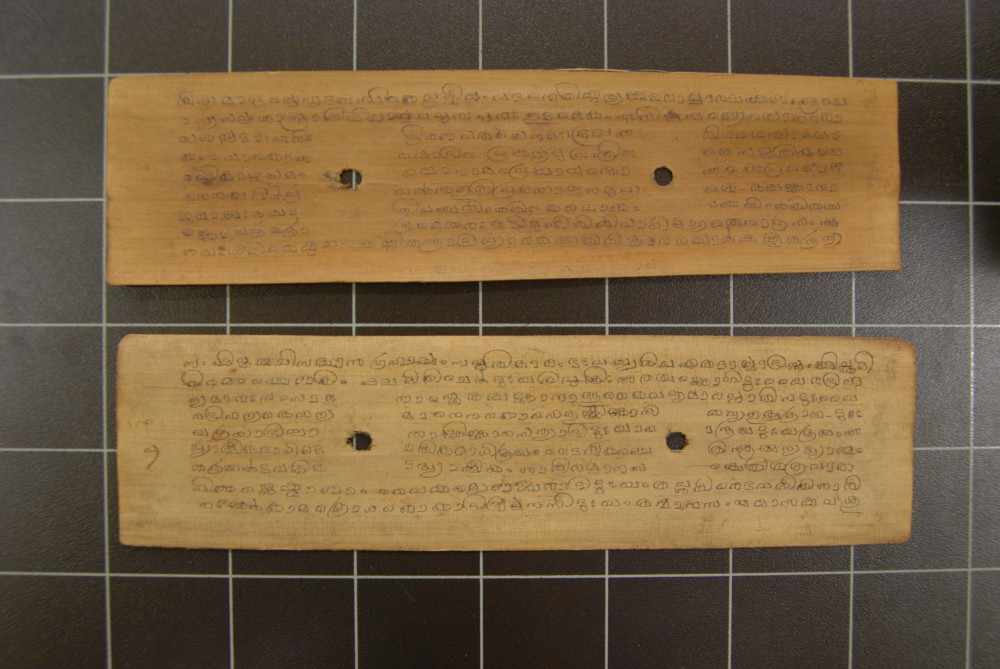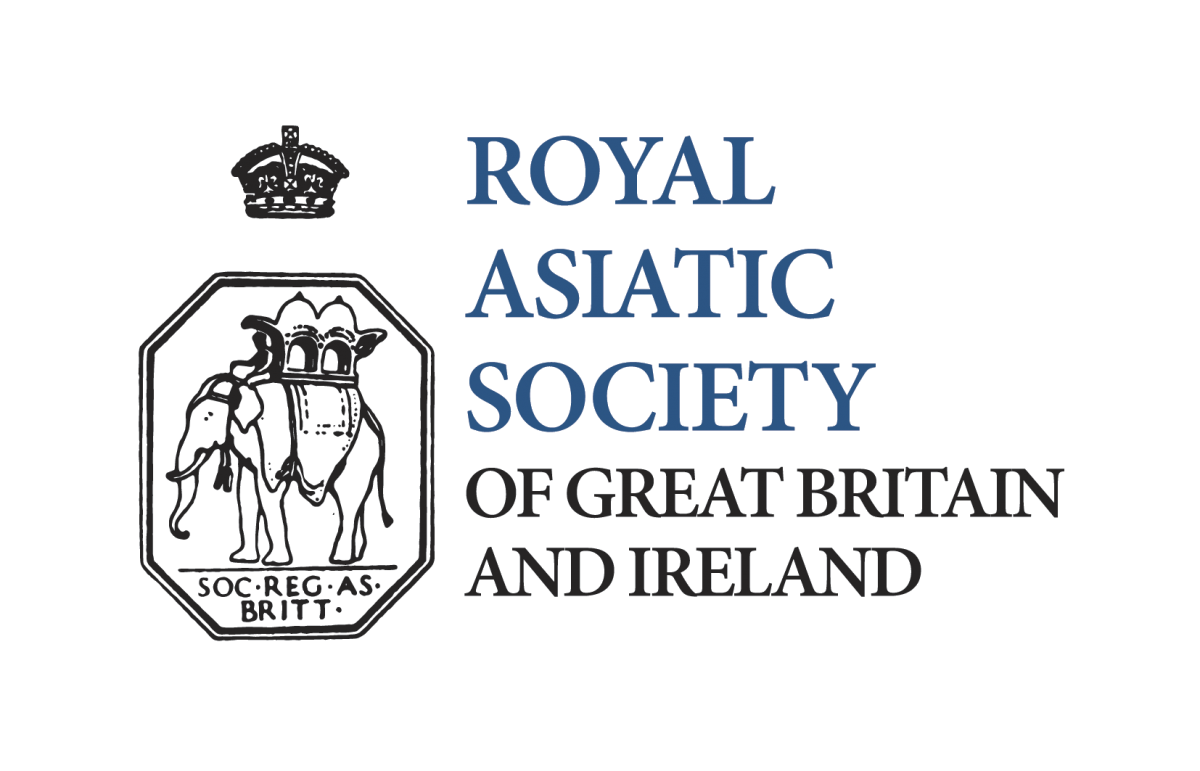Missing Malayalam Manuscripts
We are delighted to feature another blog post from previous RAS Librarian Kathy Lazenbatt, who recently finished cataloguing the RAS Whish Collection of South Indian Manuscripts.
When I was re-boxing the RAS South Indian Sanskrit manuscript collection some years ago, I realised that there was some confusion in the numbers on the wrappers. It was only after retirement, when I recently created online records for this manuscript collection, that I came back to this puzzle.
Most of the manuscripts had come from the collection of Charles Whish, a British administrator who worked in South India in the early 19th century. The first proper catalogue of the collection, by Moriz Winternitz, was published in 1902. It includes a list of all the manuscripts by number, with a note against fifteen of them that they are “not Sanskrit”, and there are no entries for these in his catalogue.

Whish had a particular interest in the work of the mathematician/astronomers of Kerala, and wrote a paper which was later published in the Transactions of the RAS (see previous blog post on October 5, 2017), demonstrating that they had arrived at an approximation of the value of π and found a solution to the mathematical problem later solved by Newton with the discovery of calculus. He refers in the paper to the Tantrasaṃgraha, an astronomical work composed by Nilakantha Somayaji around 1500. Winternitz noted in his catalogue that Whish had several copies of the Tantrasaṃgraha in Malayalam – but where were they? Putting two and two together, I guessed that the confused numbering on the wrapping might have something to do with Winternitz’s “not Sanskrit” manuscripts and the missing Malayalam copies of the Tantrasaṃgraha.
And so it turned out. The oddly numbered manuscripts were in fact Malayalam texts, amongst which there are three copies of the Tantrasaṃgraha and its commentaries, including the Yukti-bhāṣā, a text based on several mathematical/astronomical texts (mainly the Tantrasaṃgraha), composed around the 1530’s by Jyeṣṭhadeva. These may well have been some of the manuscripts used by Whish when he was writing his paper for the RAS Transactions.
So after being buried for years among the Whish Sanskrit manuscripts, the RAS finds it has a small cache of uncatalogued Malayalam manuscripts. So far only eleven of the fifteen “not Sanskrit” manuscripts have been found. Brief catalogue records have been created for these, based on notes accompanying the manuscripts, which can be upgraded once they have been examined and catalogued more fully by a Malayalam expert. To find the records, go to the online catalogue at https://ras.libertyasp.co.uk/library/libraryHome.do set the Advanced Search to “find the phrase”, and type “text in Malayalam” in the search box.
Kathy Lazenbatt
–
Last night, 7 December 2017, the Society was very pleased to host a lecture by Dr Diana Lange, “Exploring Tibet in Mid-19th Century: The British Library’s Wise Collection”, which is the subject of her forthcoming book. We are very grateful to Dr Lange for her lecture and look forward to what promises to be a fascinating publication.

We were also delighted to host a book launch on Monday, 4 December, which saw Dr Mark Condos launch The insecurity state. Although the Christmas holidays are fast approaching, we are not quite finished with events for this year, and next Wednesday, 13 December, we will see David Leffman lecture on his new book, William Mesny: How a British Adventurer Became a General in Qing-Dynasty China. We hope you will join us.
